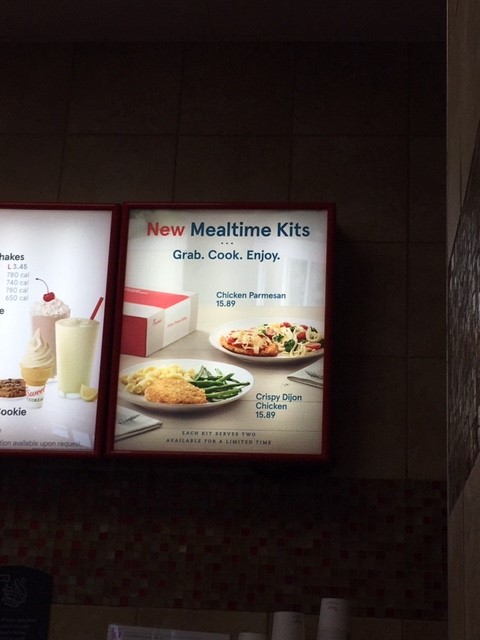Important Economic Changes of 2018
Chick-fil-a’s decision to experiment with meal kits is one example of how technological innovation has begun to shift economic activity and how stores interact with the world. These meal kits are being sold at certain locations in the Atlanta area until November 17.
November 2, 2018
There is no denying that the world is changing at a fast pace. Technological innovations, among other things, push us into a new era of modernity, where not even the oldest and most traditional of industries are left untouched. Technology has an impact on everything, from the social to the cultural to the economic, and those people and industries which refuse to keep up with the changes simply get left behind.
So it happens that now, in 2018, America faces a massive disruption of economic norms. With the rise of online shopping, headed by corporations like Amazon, more traditional, “brick and mortar” stores are becoming ever more obsolete. Department stores and other major retailer chains have begun to shut down their stores, and several have declared bankruptcy. This year alone, Macy’s and Sears have been forced to close many of their locations in various states throughout the country. Stores like Gap and Walgreens have both announced that they will be closing hundreds of underperforming locations, and these closures will take place in future months. And still other traditional retailers have been performing so poorly in this new market that they are forced not to simply shut down individual locations but to close their doors entirely. A notable example is Toys ‘R’ Us, which went out of business in June 2018, though there are rumors that the brand may be returning at some point as the owners of the company’s assets attempt to regroup, according to this article from CNN. Most recently, Mattress Firm announced at the beginning of October that it had gone bankrupt and would be closing numerous store locations throughout the country.
Beyond traditional retailers being shut down and gradually replaced with online shopping, other economic changes are also becoming apparent. Following the success of meal kit delivery services like HelloFresh and Blue Apron, as well as snacking delivery services like Graze, restaurants have begun to follow suit. In July 2018, Chick-fil-a announced that it planned to test Chick-fil-a-made meal kits at 150 locations in the Atlanta area. Chick-fil-a is the first traditional restaurant chain to experiment with meal kit delivery services, but if the attempt is successful, it is probable that other restaurants will choose to follow suit.
Our search for ways to increase convenience within everyday life is not a new concept, but with the advent of more and more impressive technology, the changes made because of this desperation for greater convenience are happening more quickly than ever before. The shift of shopping from traditional stores to online shipping, and the increasing number of deliverable meal kits and food services, are visible effects of technological innovation on the economy. It will be interesting to see what other changes will occur in future years.




